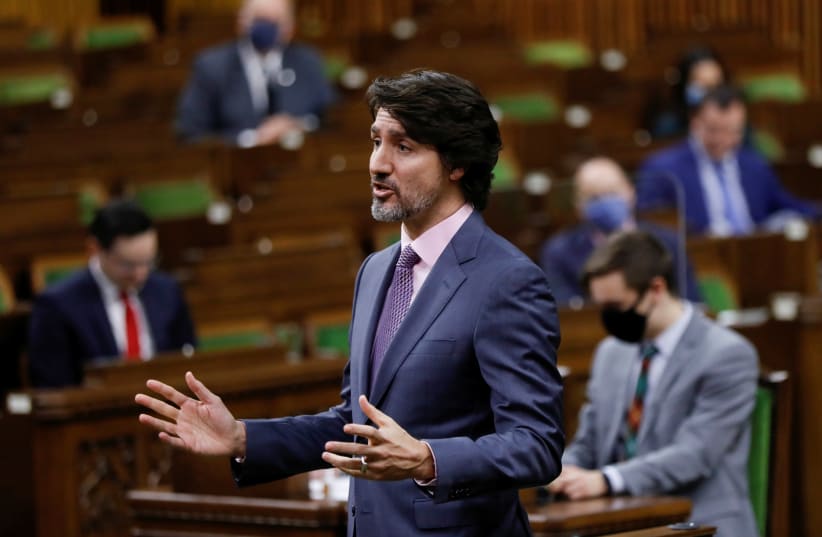But the uncovering of the remains of children must be investigated as a crime against humanity. All entities involved in residential schools — including different levels and branches of the Canadian government and various denominations of churches — must be charged with genocide and tried at the International Criminal Court.
Like others that have been speaking out, I want the ground-penetrating radar that was used at Kamloops Indian Residential School to be used at all other former residential school sites.
What happened to Indigenous children is genocide, and the legacy of that continues through denial and inaction.
Nehiyaw (Cree) legal scholar Tamara Starblanket argues that Canada must be held accountable for crimes of genocide.
The National Inquiry on Missing and Murdered Indigenous Women and Girls (MMIWG) produced a supplementary report dedicated to the issue of Canada’s genocide. Its most powerful statement reads:
Legally speaking, this genocide consists of a composite wrongful act that triggers the responsibility of the Canadian state under international law. Canada has breached its international obligations through a series of actions and omissions taken as a whole, and this breach will persist as long as genocidal acts continue to occur and destructive policies are maintained. Under international law, Canada has a duty to redress the harm it caused and to provide restitution, compensation and satisfaction to Indigenous peoples.
I have watched and felt the aftermath of this genocide. I’ve felt it all my life and I know my parents and grandparents felt it too. My grandmother went to residential school and didn’t talk about it until she was sick and dying. She told my aunt that she saw a child being buried beside the laneway to the Mohawk Institute, also known as the Mush Hole, in Brantford, Ont.
This pain and trauma has been passed down from generation to generation.
As a lawyer working with Sunchild Law, I represented residential school survivors at their Independent Assessment Process (IAP) hearings. The IAP was established to resolve claims of serious physical, sexual or emotional abuse suffered at Indian Residential Schools.
While advocating for survivors, I found this process not only difficult as an Indigenous lawyer and intergenerational survivor, but as someone who had to witness the re-traumatization of survivors. I also saw and felt their amazing strength as they persevered through this process.
As a professor of law at the University of Windsor, I am grateful our students have been able to learn Indigenous Legal Orders from Indigenous faculty with specializations in Haudenosaunee, Nêhiyaw and Anishinaabe laws.
We have done a lot at the University of Windsor Faculty of Law to implement the Truth and Reconciliation Commission’s Call to Action 28 — which calls upon “law schools in Canada to require all law students to take a course in Aboriginal people and the law.” We’ve done more than establish one course and in fact have established an Indigenous Law Stream Certificate. It’s not nearly enough, but it is a start.
Indigenous peoples’ connection to our lands, communities and peoples have enabled resilience. Our ceremonies and the strength of our Indigenous laws are strong, we are still here with our languages, songs and healing ceremonies.
The strength of the Tk’emlúps te Secwépemc peoples was seen with healing ceremonies, songs and dances to respect and honour the spirits of the 215 children.
I’ve seen and felt the strength of our people to recover and heal from the impacts of genocidal, colonial laws and policy — like The Indian Act and the ‘60s Scoop — that have been happening for decades. These feelings of pain and trauma are not new.
They are consistently and persistently triggered every time a survivor speaks out, when one of our women goes missing or is found murdered, when our people are targeted for being Indigenous, for protecting their lands and territories or when we’re violated in any way.
The MMIWG final report goes on to say:
But first and foremost, Canada’s violation of one of the most fundamental rules of international law necessitates an obligation of cessation: Canada must put an end to its perennial pattern of violence against and oppression of Indigenous peoples.
Canada’s genocidal laws and policies are not historic: the Indian Act still exists today as one of the most racist and sexist pieces of legislation in the world. At one point, it dictated that every Indigenous child must attend a residential school.
The discovery of the remains of Indigenous children must be investigated as a crime against humanity and further investigation must happen at other former residential school sites. The perpetrators must be held accountable so that genocide will stop and healing and reconciliation can occur.
I urge all Canadians to care, learn, listen, respect and unlearn the lies that have been told. I wish for all Canadians who are unaware of this genocide to learn the truth and accept that they’ve benefited from Canada’s genocidal policies and laws that have tried to erase us from existence.
Our children and survivors have to be celebrated, honoured and respected.
Byron Louis, Chief of the Okanagan Indian Band in British Columbia, posted on LinkedIn a message that should stay with all of us:
“Do not lower your head and cry, hold your head up in praise and honour them and most importantly support them. This is what they rightfully deserve in their service to our People. They need our praise not pity!”
If you are an Indian Residential School survivor, or have been affected by the residential school system and need help, you can contact the 24-hour Indian Residential Schools Crisis Line: 1-866-925-4419
